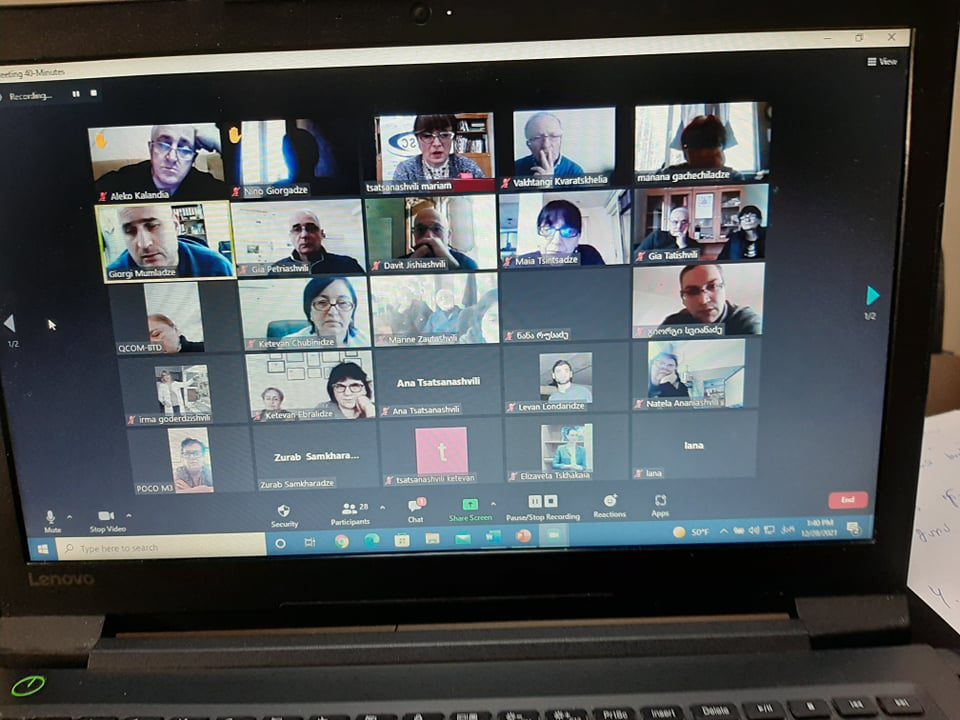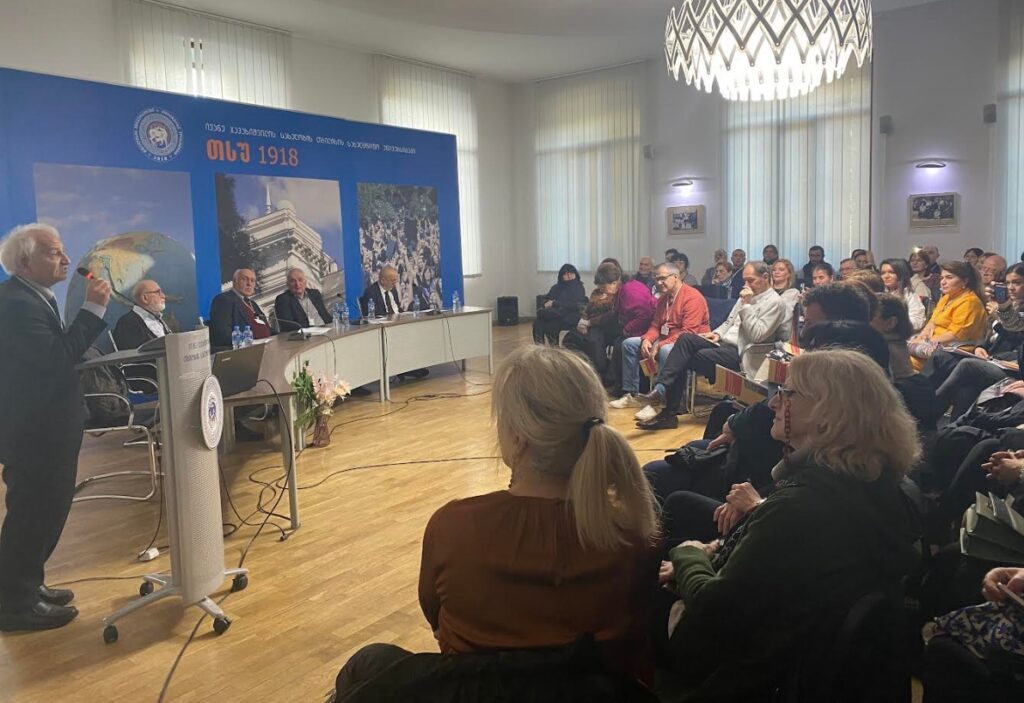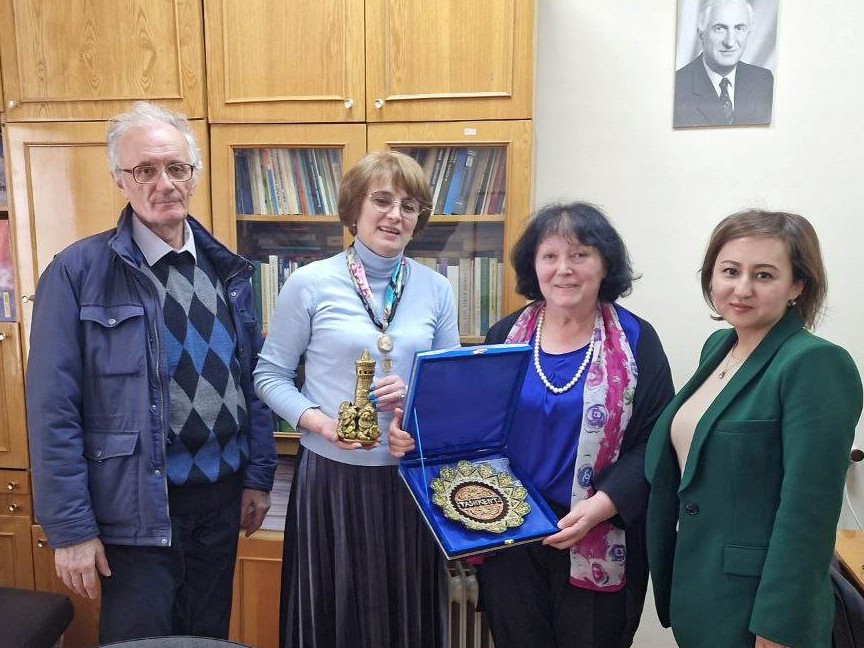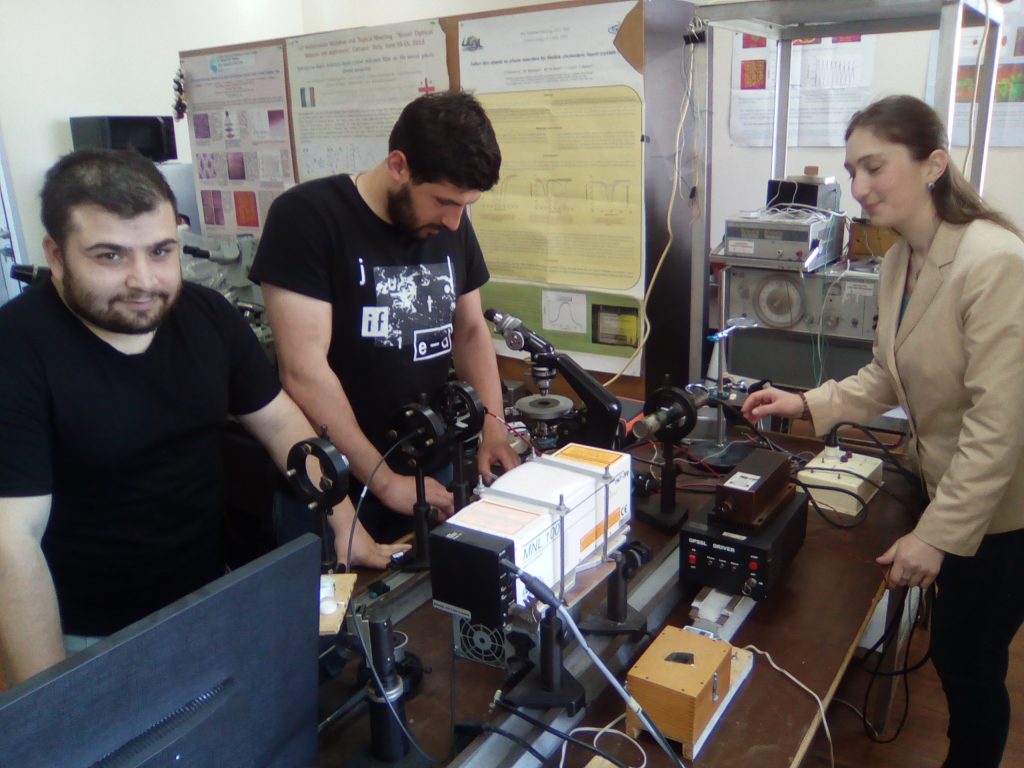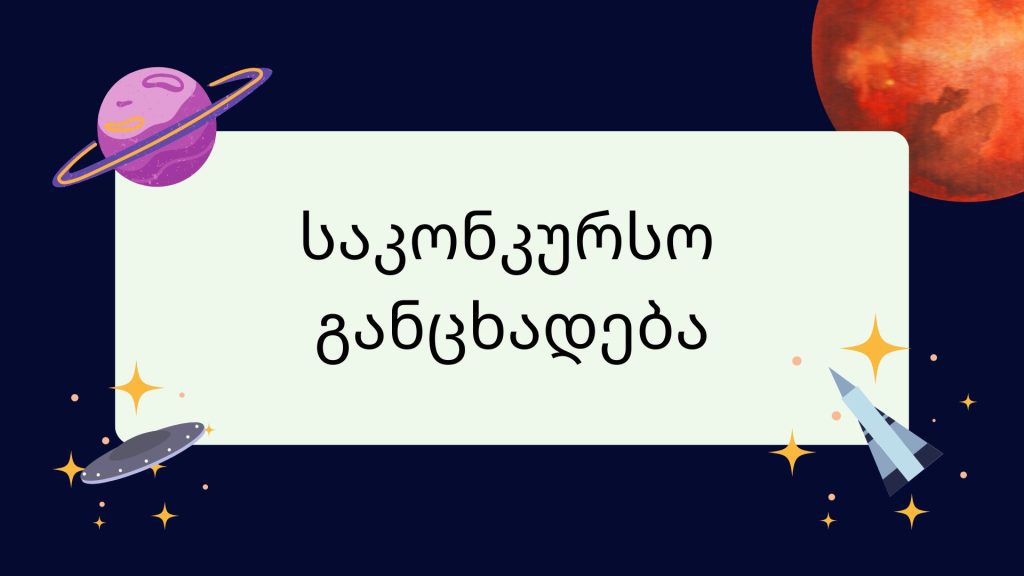On December 28, 2021, a conference of the Training-Research Scientific Center was held: Discussion of the Report of the Training-Research Scientific Center for 2021 and the Strategic Plan for 2022.
The conference was attended by representatives of the Center's partner research institutes, doctoral students using the doctoral support program, and a representative of the center's founder. The event was held in ZOOM format.
The director of the center - Mariam Tsatsanashvili spoke about the development and implementation of individual plans of doctoral students for 2021, practical seminars and conferences, methodological support for grant projects, participation in the international grant cluster, development of techniques and technologies.
In the field of chemistry-biology and physics-mathematics, the development of new technology, appropriate instruments, equipment, necessary measurements for research has been carried out; In the field of effective management systems, cross-sectoral research methods were studied, mathematical methods of problem solving and solution, "operations research" models were mastered, data were processed using computer statistical programs, data parameters were calculated, representative selection and a questionnaire were compiled.
In the reporting year, more than 40 doctoral students applied to the center to participate in the doctoral support program. Individual plans were developed, but due to the constraints caused by Covid and the reduction of financial support caused by it, the center provided assistance to only 15 doctoral students.
In order to improve transfer skills, a practical seminar by prof. Wilhelm Hauser (Germany) on new methods of organizing qualitative research in the field of science was held in Georgia in July 2021 for doctoral students participating in the Center's program.
With the methodical support of grant projects, 3 doctoral students received a grant from Shota Rustaveli Georgian National Science Foundation; The results of the research provided by the Center's individual plans were reflected in international conferences (co-authored by 6 doctoral students) and publications (2 international articles);
In the reporting year, the development of the direction of engineering and technology began. In particular: Development of a methodology for assessing the ecological status of the impact of anthropogenic factors in the Mtkvari River basin for doctoral students under the doctoral program "Chemical and Biological Engineering"; In this regard, a proposal for implementation (offer) in the Tbilisi City Hall has been prepared; Also, a methodology for doctoral students on beverage technology has been developed - improvement of new beverage technology and expansion of the assortment using the method of gas-liquid chromatography;
The center began to position itself internationally. Preparatory work was carried out: the Center was merged into the Unified Electronic Exchange of Grant and Tender Database (SEDIA); Regularly participates in the meetings organized for unification in the grant project preparation cluster, whose partners are - Italy, Germany, France, Latvia, Bulgaria, Ukraine (HE MSCA DN);
A Memorandum of collaboration was signed with the University of Gdansk to organize scientific conferences, symposia, as well as other forms of knowledge and experience transfer, to stimulate scientific research on business development (including technology transfer and commercialization of research results;)
Regarding the 2022 strategic plan - the director of the center presented a modified development plan. The modification was based on the Unified National Strategy for Education and Science for 2022-2032 and Sectoral Action Plans for 2022-2023. Plans for 2022:
- Organizing a cluster of science-based technologies together with the Center's partner research institutions. The establishment of a Review Board is defined, which is a tool for external evaluation of the Centre's development opportunities and projects; Listens to the progress of the project and the results of the implemented activities; Assesses the level of progress of the activity defined in the action plan and gives recommendations to the center on the continuation or correction of the cluster activity; Prospective members of the Review Board: Representatives of the Center's partner organizations, Representative of the Ministry of Education and Science, Representative of the Business Ombudsman, Representative of the Georgian Business Association and Chamber of Commerce, International Center for Development, Technology and Innovation (ICARTI) and European Commission H2020 NCP ICT in Georgia.
- Organization of Doctoral Networks Basis: The Center's “Doctoral Research Support Program”, which involves the implementation of doctoral programs in partnership with a variety of research institutions (including overseas), training highly qualified doctoral students, stimulating their creativity, enhancing their innovative opportunities, and long-term employment.
- Organizing training courses for postdoctoral students and academic staff in two directions:
a) Science transfer skills (patent and copyright, social and corporate responsibility, research project management and risk management, public-private partnership in research and innovation ecosystems, technological security, etc.;
b) Transfer skills in the field of humanities and more.
Plans for the following years:
- Creation of a science-intensive technological enterprise. Organization of small enterprises for testing science-intensive technologies, their validation, studying sustainability (viability) and preparing for large-scale production, making single copies and small batches;
- Organizing a science museum. The event implies the exhibition and popularization of the technologies created in Georgia to date, as well as assistance in modernization in the context of setting new tasks for more than 2 thousand expired or invalid patents and the development of mechanisms for achieving new results. The idea of a museum also implies systematic contact with school children, which increases the motivation of pupils, to interact with science. Such opportunities with partner research institutions have been revealed, identified and there is readiness.
The activities of the center were evaluated by the representatives of the academic staff: Vakhtang Kvaratskhelia, Gia Petriashvili, Aleko Kalandia, Maia Tsintsadze, Zaira Tkebuchava, Marina Khositashvili, Nana Rusadze, Giorgi Mumladze and others. They thanked the Center for its work and noted that the activities carried out by the Center help universities to improve the quality of education and accreditation, as well as put forward proposals to further improve the work of the Center;
Doctoral students - Nino Giorgadze, Ketevan Chubinidze, Giorgi Svianadze, Nika Asvanua and others also expressed their gratitude to the center. The suggestions made by them will be reflected in the development strategy of the center.
At the end of the conference, the participants congratulated on the 70th birthday of the Chairman of the meeting of founders and the first director of the Center, Doctor of Physical and Mathematical Sciences, a member of the Institute of Biography, Euroscience, the International Biographical Center (Cambridge), the American Chemical Society (ACS), a member of the Board of Directors of the International Center of the Black Sea Countries, laureate of the Academician P. Melikishvili Prize Tamaz Marsagishvili and gave him the address on behalf of the conference participants.

